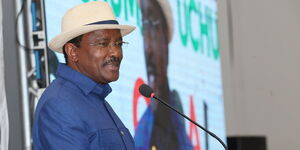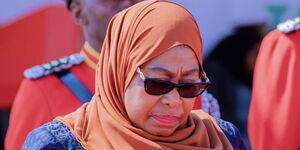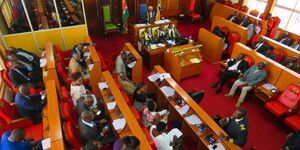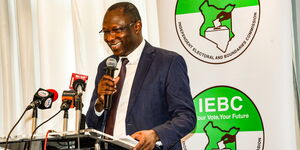Days after reports emerged that the Central Bank of Kenya (CBK) was in talks with the Bank of England (BoE) about storing Kenya’s gold at the BoE, the move was met with resistance and several issues were raised about the deal.
Abdulhakim Dahir, a lawyer, has made at least five demands of the CBK regarding the deal, raising concerns about transparency, the effect on Kenya’s sovereignty, the costs involved, the legal provisions and the risks of weaponised finance that could arise from the arrangement.
In an open letter to CBK Governor Kamau Thugge, Dahir demanded the immediate suspension of talks with the BoE until a national dialogue had been held and the details of the deal with the global bank had been urgently published.
Further, Dahir demanded the CBK conduct a Cost-Benefit analysis that publicly weighs the perceived benefits against the geopolitical and sovereignty risks of the deal.
He also demanded that Thugge and the government prioritises the development of a domestic gold reserve facility and fully disclose the draft storage agreement to the relevant Parliamentary committees and the public for scrutiny before any commitment is made.
Last week, Thugge revealed that Kenya had already held talks with the BoE as a potential avenue for bullion storage.
The talks come as Kenya plans to buy gold, which has more than doubled in price over the past two years, to diversify its reserves, which also include US dollars.
“We’ve talked to the Bank of England and other banks to see how we go about it, where it will be stored, those kinds of things,” Thugge noted.
The CBK boss maintained that Kenya’s plans to add gold were not an intention to diversify away from dollars but to diversify the nation’s foreign holdings.
As per Thugge, the country would acquire the gold from its foreign reserves, which amount to $11 billion (Ksh1.4 trillion), although he declined to reveal how much would be converted to gold.
However, in voicing his resistance, Dahir averred that the decision to store a portion of the nation’s wealth in a foreign jurisdiction, contending that it would put the country in a vulnerable position economically.
“Should Kenya ever find itself in a geopolitical dispute or subjected to international sanctions, a reality in an unpredictable world, our gold could be frozen or confiscated, leaving our economy vulnerable with little to no legal recourse,” he said.
Another key concern raised by Dahir was the erosion of national sovereignty and control, arguing that storing Kenya’s gold in London would result in the relinquishment of physical control over a key national asset.
“This creates a dangerous dependency. In a time of international crisis or economic emergency, our ability to access and leverage our own reserves could be subject to restrictions, conditions, or delays imposed by the UK government acting under its own laws or in accordance with directives from NATO,” he noted.
Gold’s record run has benefited from investors expecting further Federal Reserve interest-rate cuts, while rising debt levels in the developed world have also triggered concerns. The surging prices that have topped $4,200 (Ksh542,640) an ounce prompted some caution from Thugge.
The Bank of England is the United Kingdom’s central bank, responsible for managing the country’s monetary policy and ensuring financial stability.
It was founded in 1694, making it one of the oldest central banks in the world. Its main roles include issuing banknotes, overseeing monetary policy, monitoring financial stability, and managing foreign exchange and reserves management.












